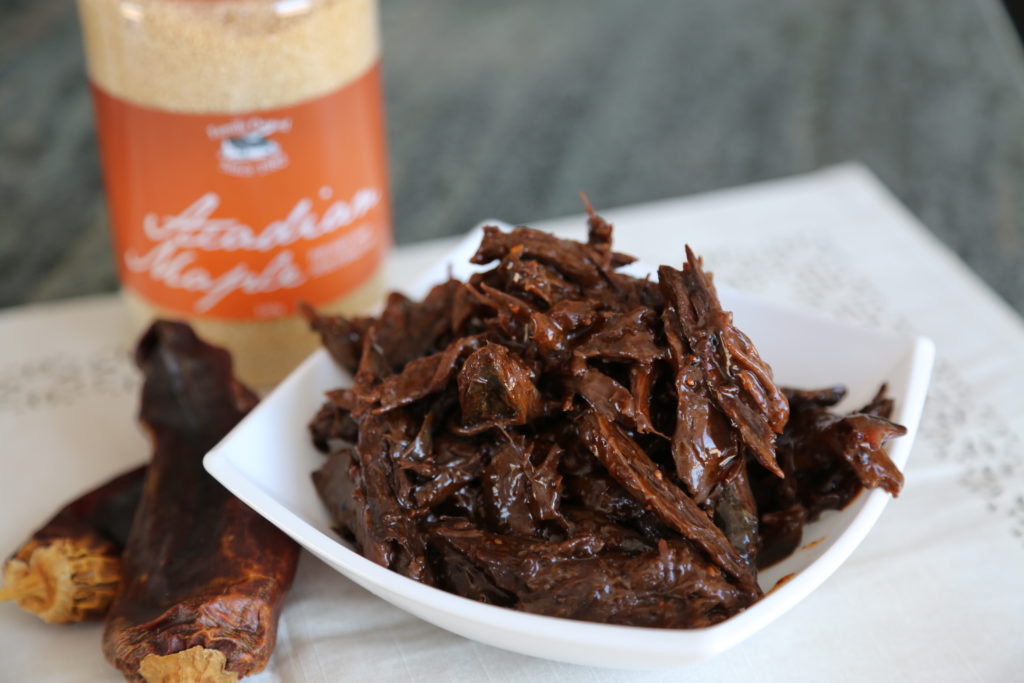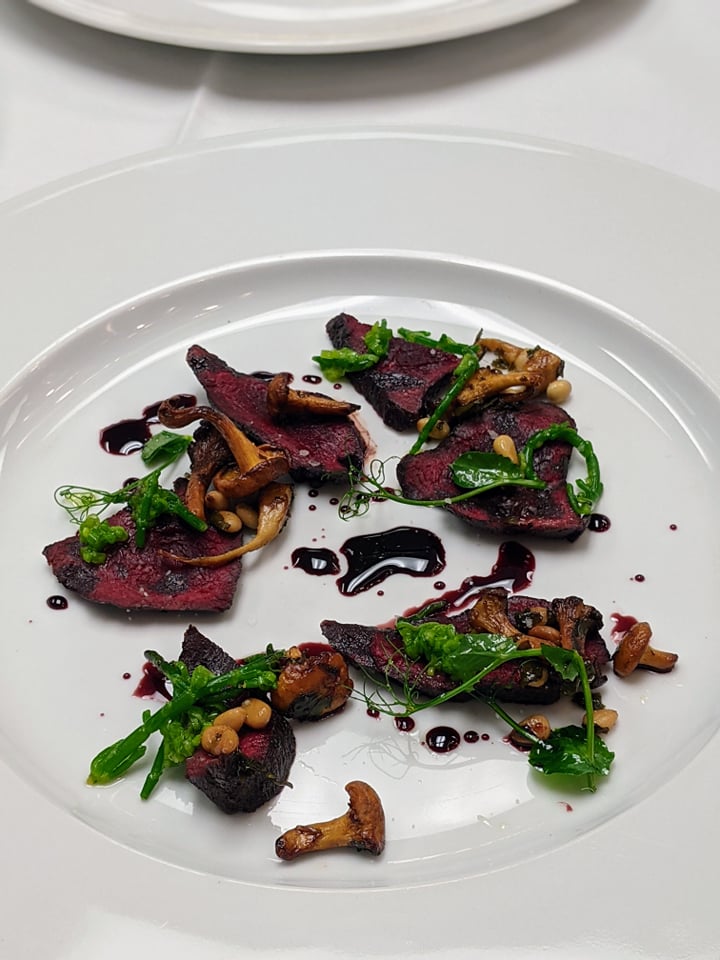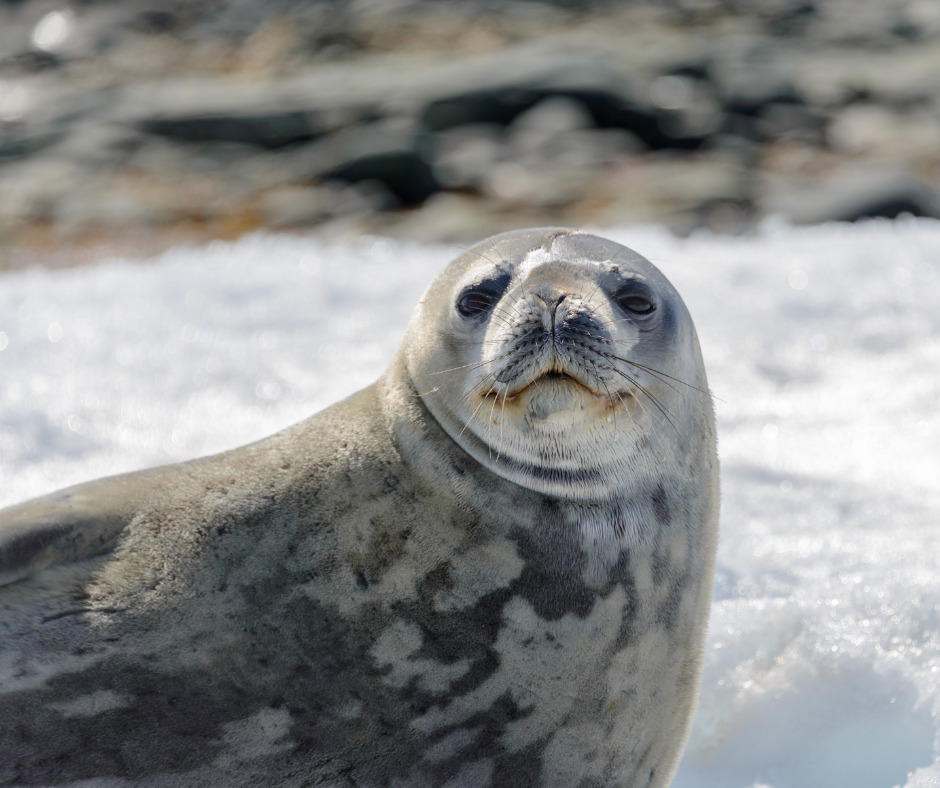When looking at the packaging for pet food products, you may see a list of a dozen nutrients the food is packed with. But how do they actually benefit your pet?
Previously, we discussed Omega-3s and their benefits for both humans and pets, plus we discussed why seal oil Omega-3s are better than fish oil for our pets. But during the National Pet Industry Show, we attended in September, customers often approached us with a question. Why is seal meat good for our pets? Is it safe for my pet? In this post, we discuss the benefits of seal meat and the reasons why it is safe for your pets to consume.

Canadian Seal Products attended the National Pet Industry Show organized by PIJAC in Toronto in September 2022
Health benefits and nutrition value of seal meat for my pets
Seal meat is packed with nutrients including iron, zinc, and phosphorus. It also has a much higher count of vitamin B-12, protein, and magnesium compared to beef, pork, chicken, or cod.

And of course, it’s packed with Omega-3s which helps to maintain healthy skin and a shiny coat. Omega-3 fights inflammation, which is often tied to pet allergies as well as skin and dander issues. In turn, that helps animals maintain moisturized, healthier skin as well as a shinier softer coat of fur. Just like it does for humans, Omega-3s can battle against joint pain for older cats and dogs by strengthening the bones and reducing swelling. Visit this page to learn more about Omega-3 Seal Oil benefits for your pet: http://canadiansealproducts.ficwebhosting.com/products/pet-supplements/
Canadian Seal Products has developed different seal meat treats for pets that were distributed as samples during the National Pet Industry Show 2022. Below is a comparative table of the different treats:
You can find more information on these samples, their nutritional content, and their benefits right here: http://canadiansealproducts.ficwebhosting.com/products/seal-meat/seal-meat-for-pets.
Below is a comparative table of the different treats.

The table below provides selected minerals and vitamins, calcium, phosphorus, copper, iron, manganese, zinc, , B1 (thiamine), B2 (riboflavin), B3 (niacin), B12 (cobalamin) of the seal meat bone-in (SMBI), seal meat boneless (SMBL).

The table below shows the composition of the fat from the seal meat bone in (SMBI) and without bone (SMBL). While there is very little fat in the SMBI and SMBL, the composition shows that the good fat (mono and poly unsaturated) far outweighs any of the bad fat (trans) and Omega 3 and 6 fatty acids are present.

Let’s look at how the different nutrients packed in seal meat can keep your pet healthy:
1. Protein
Protein plays several roles in improving your pet’s health. It helps build and repair muscles and it’s needed to form new skin cells and grow fur. It also creates hormones and enzymes that are necessary for normal function, as well as provides energy and keeps the immune system going.
2. Zinc
Zinc is an essential mineral to maintain a dog’s good health. It’s integral in helping the immune system function while it’s also involved in the production of several hormones and cellular reproduction.
3. Calcium
Calcium strengthens bones and teeth for pets. Calcium helps pets with hormone transmission as well as contraction in skeletal muscles so pets can keep running around. In addition, it plays a role in contractions through the intestines which ultimately helps with digestion.
4. Magnesium
One of the best things about magnesium is it helps your pet’s body absorb other minerals like calcium, phosphorus, and potassium. Magnesium is usually stored in your animal’s bones, organs, and muscles, which all play a role in keeping their digestion going smoothly and boosting their energy. Magnesium turns amino acids into protein and therefore creates healthy muscles. A low level of magnesium is common in critically ill cats and can lead to low blood levels of electrolytes, such as potassium and calcium. So it’s important to keep those levels up
5. Phosphorus
Like calcium, it’s important for animals to have a balance of phosphorus in their body because it plays a role in strengthening healthy teeth and bones. Phosphorus and calcium usually work together in your pet’s body and is essential to support healthy kidney function.
6. Vitamin B12
Meat is high in vitamin B12, which is good for both humans and pets. This essential vitamin helps with things like brain and nervous system function, cell growth, protein synthesis, and metabolizing fat and carbohydrates, as well as forming red blood cells.
7. Vitamin B3
Speaking of metabolism, Vitamin B3 (Niacin) also helps in that department. It breaks down fatty acids and converts fats and carbohydrates into energy. Plus, a high level of vitamin B3 means digesting healthy fats and in turn, creating healthier skin.
Nutritional recommendations for dogs
There are currently no standards or recommendations in Canada regarding the nutritional aspect of pet food. However, in the United States, the National Academy of Science published the document Your Dog’s Nutritional Needs – A Science-based Guide for Pet Owners (2006). You can find in the tables below the main needs and nutritional values of dogs according to their weight and age as well as the main information regarding energy requirements, macronutrients (proteins and lipids) and minerals.



Can iron be dangerous for my pet?
In terms of mineral intake, it is known that seal meat is naturally very rich in iron. In fact, according to the Canadian Nutrient File (2016), meat raw seal (item #3645) would contain 20.3mg of iron/100g. The iron content will therefore be a element to monitor following the nutritional analysis of treats. Indeed, according to McCown & Andrew (2011), an iron consumption higher than 20mg/kg of weight could have adverse effects on your pet health. The dangers of overconsumption of iron are presented in the Table below. Recognized symptoms of iron overconsumption range from gastrointestinal to manifestations of fatigue and hypotension, or even edema lungs, slow liver activity, coma and death (McCown & Andrew, 2011).

There are two seal treats that were developed by Canadian Seal Products that have higher iron levels compared to the other treats: the Freeze-Dried Seal Bites and the Seal Powder.

Freeze-dried seal meat protein bites and seal meal (powder) for pets developed by Canadian Seal Products as part of the National Pet Industry Show that took place in Toronto in 2022.
For the Freeze-Dried seal treat, the low target weight for treats (1g) ensures that the health risks for dogs associated with its overconsumption are minimized. Indeed, although a consumption of 8 treats makes it possible to reach the recommended daily iron content (7.5mg for a 33lb dog), a dog of this weight would have to consume more than 100 for there to be a real risk for his health.
As for the Seal Powder as a meal topper, a teaspoon of seal meat powder is app. 5ml or 4 grams. Therefore, even with a consumption of 2 teaspoon per day which represents 6.768 mg of iron, it is impossible to reach the recommended daily iron content for a mid size dog (7.5mg for a 33lb dog).
The iron content of both prepared treats will be low enough to allow their consumption in a safe way.
So is seal meat safe for my pet?
Canada is well recognized for its agrifood products quality and safety, and the regulations for seal meat products are no different than other seafood or meat products. Learn more about seal meat quality control in Canada.
The Canadian Food Inspection Agency (CFIA) is responsible to establish policies and standards for the safety and nutritional quality of seal meat sold in Canada. Seal meat meets all health and safety requirements pertaining to mercury, heavy metals and other pollutants as determined by the CFIA.
CFIA also implements the Safe Food for Canadians Regulations (SFCR) where food businesses are required to prepare, keep and maintain a written Preventive Control Plan (PCP) to demonstrate how hazards and risks to food are addressed.
The Canadian Food Inspection Agency is also in charge to develop and enforce the Codes of practice or the Harvest, Transport, Processing, and Export of Seal Products Intended for Human Consumption. This Code Of Practice is intended to establish controls pertaining to the entire chain of events from harvest to final packaging of seal meat products for domestic consumption or export.
You can rest assured that all seal meat products available through the “Canadian Seal Products” brand (including seal treats for pets) meet strict criteria and guidelines ensuring the highest standards of quality, safety and traceability.
Click here to learn more about seal meat quality assurance

Produce seal treats under your own brand name
Canadian Seal Products will not sell these products as it is a non-profit organization. Phocalux, Carino, and Waspu can produce seal treats under your own brand name for a Minimum Order Quantity. To order seal treats, you can contact one of the following companies:
Phocalux International
- Natasha Rideout, Manager
- Email: phocaluxinc@gmail.com
- Phone: +(709)725-9344
- www.phocalux.ca
Carino Processing Ltd.
- Email: office@carino.ca
- Phone: +1(709)582-2100
- www.carino.ca
Waspu
- Bill Penney, Marketing Manager
- Email: admin@mikmaqcf.com
- www.mikmaqcf.com
Bibliography:
https://www.seadna.ca/6-crystal-clear-faq-answers-that-make-you-make-up-mind-to-buy/
https://www.healthline.com/health/arthritis-fish-oil-omega-3#arthritis-basics
https://www.seadna.ca/about-us/
http://canadiansealproducts.ficwebhosting.com/app/uploads/2022/09/all-natural-seal-pet-chew-v2.pdf
https://www.petmd.com/dog/nutrition/the_power_of_protein
https://vetsallnatural.com.au/zinc-and-selenium/
https://www.alchemypet.com/blogs/learn/phosphorus-in-dogs



